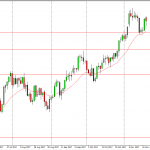The pace of growth for private-sector employment picked up in September, according to this morning’s ADP Employment Report. US companies added 200,000 jobs to payrolls last month, a moderately stronger gain vs. a revised increase of 187,000 in August. The upbeat numbers suggest that Friday’s official jobs report from Washington will also deliver encouraging numbers for September. Meantime, today’s data throws cold water on the notion that the US economy stumbled this month.
One caveat is that ADP’s estimate for payrolls this month translates into a slightly lower year-over-year increase. The 2.17% rise in September over the year-earlier level is still a solid pace, although today’s update marks the eighth straight month of deceleration in the annual growth rate. It’s unclear if this a sign of trouble ahead or just a normal maturing process that accompanies periods of economic growth as time rolls on. Indeed, the US current recovery is six years old—the fifth-longest in NBER’s business-cycle database, which begins in the mid-1800s.

For now, the latest news on job creation remains encouraging. “The U.S. job machine continues to produce jobs at a strong and consistent pace,” said Mark Zandi, chief economist of Moody’s Analytics, which publishes the data in connection with ADP. “Despite job losses in the energy and manufacturing industries, the economy is creating close to 200,000 jobs per month. At this pace full employment is fast approaching.”
Today’s positive spin on jobs follows last week’s news that Markit’s US Composite PMI Output Index is signaling ongoing growth through this month. Although this sentiment index ticked down to 55.3 in September from 55.7 in the previous month, the flash reading of the Composite PMI for this month is still well above the neutral 50.0 mark that separates growth from contraction. “The survey data point to sustained steady expansion of the US economy at the end of the third quarter, but various warning lights are now flashing brighter, meaning growth may continue to weaken in coming months,” said Chris Williamson, chief economist at Markit.
















Leave A Comment